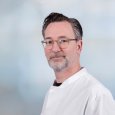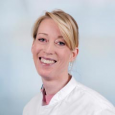The University Medical Center Groningen (UMCG) is building the future of health. They do this in their patient care, scientific research, education and in medical and nursing training programs. In all these core tasks, UMCG strives to excel and innovate, because they know they can always become better and every day offers opportunities to work on just that.
A central theme of the UMCG is ‘Healthy Ageing’. How do you do it? Parents pass on their genes to their child. This inherited package of genes determines in part the course of our life and the risk of developing disease, as do factors such as lifestyle, diet, physical exercise and the use of medication. It is not at all clear yet how all these factors interact, why some develop diseases and others stay healthy. To answer this question, we need to build new knowledge. UMCG scientists work hard to contribute to generating this fundamentally new knowledge.
UMCG’s three starting points speak for themselves:
- The patient as a person is leading. UMCG wants people to be as healthy as they possibly can be. Both now and in the future. Everything UMCG does contributes to this, even if they work together with others, e.g. with regional healthcare organizations.
- UMCG are pioneers in research. Their scientific research results in new knowledge about health, prevention, disease and treatments. UMCG uses this knowledge for their innovations: practical improvements in healthcare. All of their patients benefit from this. That is why UMCG wants to be among the best (bio)medical knowledge institutes in the world.
- UMCG shares its knowledge in the north of the Netherlands and across the globe. Their knowledge belongs to everyone. UMCG shares new insights with others and helps them apply them in practice. Their education is also based on this innovation. This benefits their patients in the North of the Netherlands and elsewhere. This is why UMCG participates in many (inter)national networks and joint ventures for all of their core tasks.
Role within INTERCEPT
Within the INTERCEPT consortium, the UMCG team is leading WP2 (development of the predictive algorithm for CD onset, lead: Rinse Weersma) and WP7 (data management and -infrastructure, lead: Morris Swertz). Following their expertise, UMCG’s role within INTERCEPT will primarily pertain to applying their biostatistical and bioinformatic expertise to construct a biomarker-based (WP1) predictive algorithm to identify high-risk individuals within the cohort of first-degree relatives that will be recruited in WP3. Furthermore, they lead FAIR data management, integration and building the data sharing infrastructure (WP7), contributing UMCG’s acknowledged MOLGENIS data platforms. These resources will be used to identify time-varying trajectories of individual biomarkers in relation to CD diagnosis (based on the different datasets available from WP1), construct and optimize models based on biomarker data, construct the predictive algorithm and develop an early intervention pathway.
Main contacts

Prof. Dr. Rinse Weersma
Gastroenterologist, PI / lead WP2 (MD PhD)

Dr. Arno Bourgonje
Postdoc, physician-scientist (MD PhD)

Prof. dr. Morris Swertz
PI/lead data management (WP7) (PhD)

Drs. Aneas Hodselmans
Information manager WP7 (MSc)

Dr Eleonora Festen
Gastroenterologist (MD PhD)

Dr. Iwan Hidding
Bioinformatician, postdoc (PhD)
